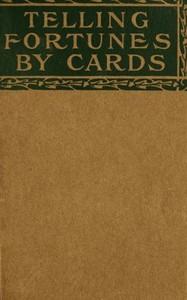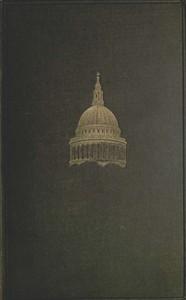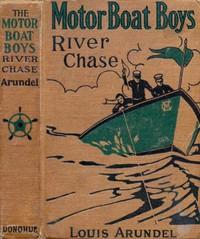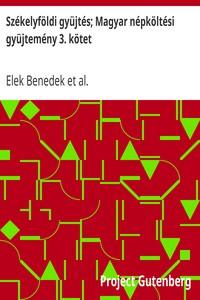Read this ebook for free! No credit card needed, absolutely nothing to pay.
Words: 93828 in 16 pages
This is an ebook sharing website. You can read the uploaded ebooks for free here. No credit cards needed, nothing to pay. If you want to own a digital copy of the ebook, or want to read offline with your favorite ebook-reader, then you can choose to buy and download the ebook.


: Glimpses of Three Coasts by Jackson Helen Hunt - Europe Description and travel; Pacific Coast (U.S.) Description and travel
Fitton. He delivered his speech to the king; presented to him a "standing cup with a cover double gilt, and therein a hundred jacobins of gold;" likewise delivered to him the city's sword, and afterward bore it before him, in the procession. But when King James proposed, in return for all these civilities, to make a knight of him, Charles Fitton sturdily refused; which was a thing so strange for its day and generation that one is instantly possessed by a fire of curiosity to know what Charles Fitton's reasons could have been for such contempt of a knight's title. No doubt there is a story hanging thereby,--something to do with a lady-love, not unlikely; and a fine ballad it would make, if one but knew it. The records, however, state only the bare fact.
Then there was, a hundred years later than this, a man who got to be mayor of Chester by a very strange chance. He was a ribbon-weaver, in a small way, kept a shop in Shoemaker's Row, and lived in a little house backing on the Falcon Inn. All of a sudden he blossomed out into a rich silk-mercer; bought a fine estate just outside the city, built a grand house, and generally assumed the airs and manners of a dignitary. As is the way of the world now, so then: people soon took him at his surface showing, forgot all about the mystery of his sudden wealth, and presently made him mayor of Chester. Afterward it came out, though never in such fashion that anything was done about it, how the mayor got his money. Just before the mysterious rise in his fortunes, a great London banking-house had been robbed of a large sum of money by one of its clerks, who ran away, came to Chester, and went into hiding at the Falcon Inn. He was tracked and overtaken late one night. Hearing his pursuers on the stairs, he sprang from his bed and threw the treasure bags out of the window, plump into the ribbon-weaver's back-yard; where the disappointed constables naturally never thought of looking, and went back to London much chagrined, carrying only the man, and no money. None of the money having been found on the robber, he escaped conviction, but subsequently, for another offence, was tried, convicted, and executed. I take it for granted that it must have been he who told in his last hours what he did with the money bags: for certainly no one else knew,--that is, no one else except Mr. Samuel Jarvis, the ribbon-weaver, who, much astonished, had picked them up before daylight, the morning after they had been thrown into his back-yard. It is certain that he kept his mouth shut, and proceeded to turn the money to the best possible account in the shortest possible time. But an evil fate seemed to attach to the dishonestly gotten riches; Jarvis dying without issue, his estate all went to a man named Doe, "a gardener, at Greg's Pit," whose sons and grandsons spent the last penny of it in riotous living. So there is now "nothing to show for" that money, for the stealing of which one man was tried for his life, and another man made mayor of Chester; which would all come in capitally in a ballad, if a ballad-monger chose.
Of the famous Chester Rows, nobody has ever yet contrived to give a description intelligible to one who had not seen them. The more familiarly they are known, the more fantastic and bewildering they seem, and the less one is sure how to speak of them. Whether it is that the sidewalk goes upstairs, or the front second-story bedroom comes down into the street; whether the street itself be in the basement or the cellar, or the sidewalk be on the roofs of the houses;--where any one of them all begins or leaves off, it would be a courageous narrator that tried to explain. They appear to have been as much of a puzzle two hundred years ago as to-day; for the devout old chronicler of the Vale-Royale, essaying to describe them, wrote the following paragraph, which, delicious as it is to those who know Chester, I think must be a stumbling-block and foolishness to those who do not. He says there is "a singular property of praise to this city, whereof I know not the like of any other: there be towards the street fair rooms, both for shops and dwelling-houses, to which there is rather a descent than an equal height with the floor or pavement of the street. Yet the principal dwelling-houses and shops for the chiefest Trades are mounted a story higher, and before the Doors and Entries a continued Row, on either side the street, for people to pass to and fro all along the said houses, out of all annoyance of Rain, or other foul weather, with stairs fairly built, and neatly maintained to step down out of those Rowes into the open streets: almost at every second house: and the said Rowes built over the head with such of the Chambers and Rooms for the most part as are the best rooms in every one of the said houses.
"It approves itself to be of most excellent use, both for dry and easy passage of all sorts of people upon their necessary occasions, as also for the sending away, of all or the most Passengers on foot from the passage of the street, amongst laden and empty Carts, loaden and travelling Horses, lumbering Coaches, Beer Carts, Beasts, Sheep, Swine, and all annoyances, which what a confused trouble it makes in other cities, especially where great stirring is, there's none that can be ignorant."
He also suggests another advantage of this arrangement, which seems by no means unlikely to have been part of its original reason for being; namely, that "when the enemy entered they might avoid the danger of the Horsemen, and might annoy the Enemies as they passed through the Streets." Probably in this writer's day the marvel of the construction of the Rows was even greater than it is now; in many instances the first story was excavated out of solid rock, so you began by going downstairs at the outset. These first stories of the ancient Cestrians are beneath the cellars of the Rows to-day; and every now and then, in deepening a vault or cellar-way, workmen come on old Roman altars, built there by the "Legyons" of Julius, or Claudius Caesar, dedicated to "Nymphs and Fountains," or other genii of the day; baths, too, with their pillars and perforated tiles still in place, as they were in the days when cleanly and luxurious Roman soldiers took Turkish baths there, after hot victories. Knowing about these lower strata adds a weird charm to the fascination of strolling along in the balconies above, looking in, now at a jeweller's window, now at a smart haberdashery shop, now at some neat housekeeper's bedroom window, now into a mysterious chink-like passage-way winding off into the heart of the building; and then, perhaps, presto! descending a staircase a few feet, to another tier of similar shop-windows, domiciles, garret alleys, and dormer-window bazars; and the next thing, plump down again, ten feet or so more, into the very street itself. Indeed are they, as the "Vale-Royale" says, "a singular property of praise to this city, whereof I know not the like of any other."
One manifest use and enjoyment of this medley of in and out, up and down, above and below, balconies, basements, attics, dormer windows, gables, and casements, the old chronicler failed to mention, but there can never have been a day or a generation which has not discovered it, and that is the convenient overlooking of all that goes on in the street below. What rare and comfortable nooks for the spying on processions, and all manner of shows and spectacles! To sit snug in one's best chamber, ten feet above the street, ten feet out into it, with windows looking up and down the highway,--what vantage it must have been in the days when the Miracle Plays went wheeling along from street to street, played on double scaffolded carts; the players attiring themselves on the lower scaffold, while the play was progressing on the upper! They began to do this in Chester in the year of our Lord 1268. There were generally in use at one time twenty-four of the wheeled stages; as soon as one play was over, its stage was wheeled along to the next street, and another took its place. The plays were called Mysteries, and were devised for the giving of instruction in the Old and New Testament, which had been so long sealed books to the people. Luther gave them his sanction, saying, "Such spectacles often do more good and produce more impression than sermons."
The old chronicles are full of quaint and interesting entries in regard to these plays. The different trades and guilds of the city represented different acts in the holy dramas:--
In 1574 these plays were played for the last time. There had been several attempts before to suppress them. One Chester mayor, Henry Hardware by name, being a "godly and zealous man, caused the gyauntes in the mid-somer show to be broken up, not to go; and the devil in his feathers he put awaye, and the caps, and the canes, and dragon and the naked boys."
But it was reserved for another mayor, Sir John Savage, Knight, to have the honor of finally putting an end to the pageants. "Sir John Savage, knight, being Mayor of Chester, which was the laste time they were played, and we praise God, and praye that we see not the like profanation of holy Scriptures, but O, the mercie of God for the time of our ignorance!" says an old history, written in 1595.
At intervals between these pious suppressions, carnal and pleasure-loving persons made great efforts to restore the plays; and there are some very curious accounts of expenditures made in Chester, under mayors less godly than Hardware and Savage, for the rehabilitation of some of the old properties of the sacred pageants:--
"For finding all the materials with the workmanship of the four great giants, all to be made new, as neere as may be, lyke as they were before, at five pounds a giant, the least that can be, and four men to carry them at two shillings and sixpence each."
These redoubtable giants, which could not be made at less than five pounds apiece, were constructed out of "hoops, deal boards, nails, pasteboard, scale-board, paper of various sorts, buckram size cloth, old sheets for their bodies, sleeves and shirts, tinsille, tinfoil, gold and silver leaf, colors of different kinds, and glue in abundance." Last, not least, came the item, "For arsknick to put into the paste to save the giants from being eaten by the rats, one shilling and fourpence."
Free books android app tbrJar TBR JAR Read Free books online gutenberg
More posts by @FreeBooks

: Telling Fortunes by Cards A Symposium of the Several Ancient and Modern Methods as Practiced by Arab Seers and Sibyls and the Romany Gypsies by Ali Mohammed Case Carleton B Carleton Britton Editor - Fortune-telling; Card games; Fortune-telling by cards


: Sir Christopher Wren: His Family and His Times With Original Letters and a Discourse on Architecture Hitherto Unpublished. 1585-1723. by Phillimore Lucy - Wren Christopher Sir 1632-1723; Wren family; Great Britain History Stuarts 1603-1714 Biography




